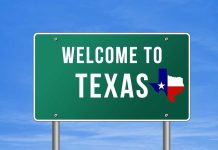
The Department of Homeland Security (DHS) is calling out major media outlets for biased reporting on the Tren de Aragua gang amidst contentious immigration policies under the Biden administration.
Key Takeaways
- DHS refuted Venezuelan claims of child separations from gang-related parents.
- The Trump administration ceased “catch and release” policies blamed for public safety risks.
- Tren de Aragua is linked to Venezuelan dictator Nicolás Maduro and declared a “terrorist organization.”
- Reuters faced criticism for focusing on gang members’ narratives over their criminal activities.
DHS’s Response to Media Outlets
The DHS has responded critically to media coverage by outlets like Reuters, accused of downplaying the criminal threats posed by the Tren de Aragua gang. This international criminal organization, intertwined with the Venezuelan government, has been labeled a violent terrorist group. Critics argue that publications have painted gang members more as victims than as perpetrators.
The department clarified incidents involving the gang, including the removal of a child from her criminal parents for her safety, indicating the parents involved in sex trafficking and other serious crimes. According to DHS, the child’s father, Maiker Espinoza-Escalona, and mother, Yorely Escarleth Bernal Inciarte, both faced removal orders.
Immigration Policy Scrutiny
DHS has taken a firm stance against the leniency in immigration policies observed under the Biden administration, particularly spotlighting the risks of “catch and release” tactics. The department claims these strategies have allowed potentially dangerous individuals to remain legally in the United States, posing a concern for community safety.
The current DHS has highlighted the action taken against gang members and the prioritization of child safety, marking a pivot from prior methods criticized for their permissiveness. The department asserts that under this administration, over 5,000 unaccompanied children have been reunited with safe guardians.
Tensions with Media Reporting
The clash with media narratives extends to incidents like the alleged gang members sending an “SOS” signal at a Texas detention center. DHS described the coverage as sensationalized and misleading, emphasizing the gang’s links and their criminal histories that warranted detention and potential deportation.
“The previous administration released these gang members into our communities, President Trump and Secretary Noem have ended catch and release and will not allow criminal gangs to terrorize American citizens,” stated Assistant Secretary Tricia McLaughlin.
In addressing biases, McLaughlin criticized the focus on gang members’ stories over their victims, questioning the media’s narrative choices. Such statements underscore the administration’s push for accountability and focus on public safety.









